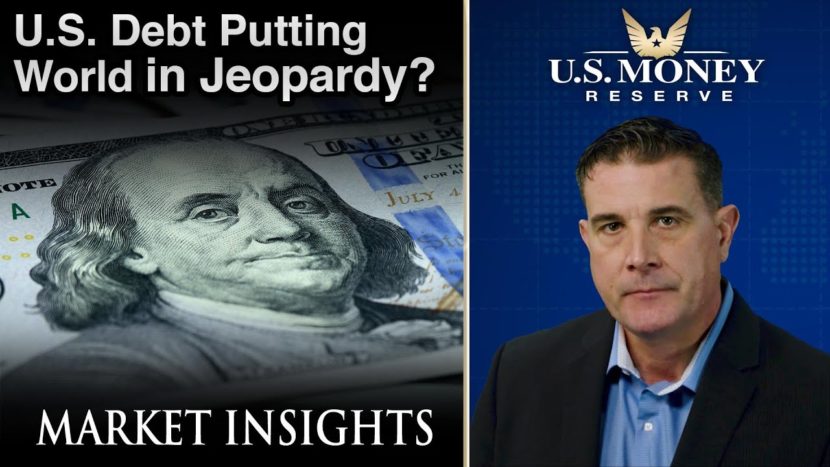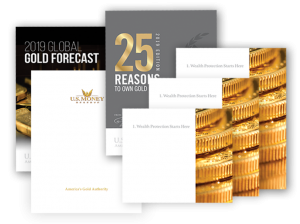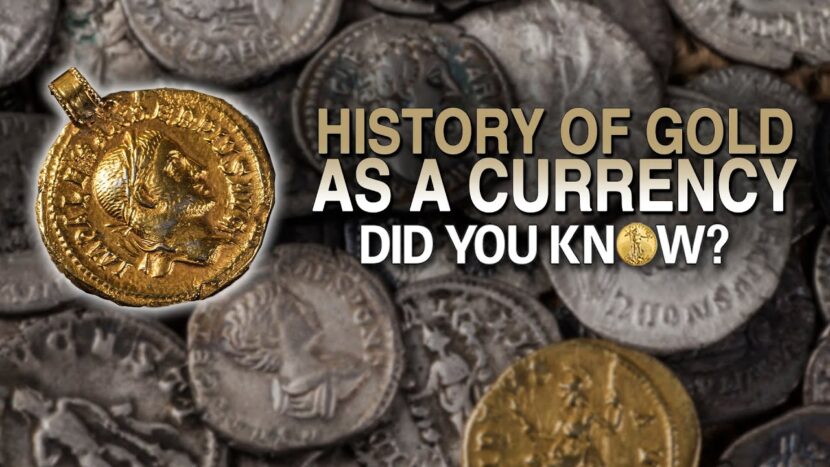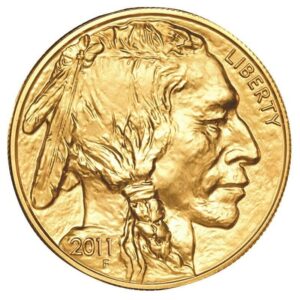The United States can't continue to stay on the path that it's on when we keep borrowing and continuing to extend the national debt without making a significant change. In today's USMR Market Insights, Coy Wells shares his views on the U.S. national debt.
Is the U.S. National Debt Putting the World in Jeopardy?- Video Transcription
Coy Wells: 00:00
As many of you know, the United States has now pushed over the 22 trillion dollar mark in regards to our national debt. For those who are retired, they understand that a 22 trillion dollar national debt puts the United States into a position that is now unfathomable. They understand that the United States is now in a critical position. Several weeks ago, we also saw the International Monetary Fund come out on national television and specifically speak about the United States. And that the United States is now encroaching and putting themselves in a position where they're now putting the world into a position of Jeopardy. What I mean in jeopardy, is that the United States has now put themselves into a position where their national debt is affecting the global debt of the entire world. The biggest concern now is United States is not producing enough income inside the United States to cover the interest on U.S. Treasury bonds, which we've talked about going back several months ago.
Coy Wells: 00:51
Christine Lagarde, who is regarded the fifth most powerful financial leader in the world, specifically talked about that the banks and the financial markets of the United States have continued to extend themselves. And this is primarily due to us printing four trillion dollars under the Obama administration, but also keeping interest rates subdued for a long period of time. When we keep interest rates subdued for a long period time, it allows money that is borrowed in the market or for buying cars or homes or credit cards or student loans to go rampant, because it's cheap. It's easier for you and I to go out and use somebody else's money, as opposed to digging into our own pocket. Christine Lagarde, along with the International Monetary Fund is now suggesting that it's causing global panic. As she discussed several weeks ago, because of this very issue, she's discussing and talking right now about the United States losing its position as the world's largest economy. That we would be falling into a second position behind China.
Coy Wells: 01:45
And if that happens, the question we now have to ask ourselves is, what does that do to the U.S. dollar? Well anybody who understands just those simple terms that the United States would not be the big kid on the block, understands it would have a dramatic impact to the U.S. dollar that you and I use on a daily basis. Because of that taking place, its starting to cause global panic. And when it starts causing global panic, it's causing the central banks around the world to start reducing their holdings on U.S. dollars. To confirm this, the International Monetary Fund has now also confirmed that the central banks around the world in the second quarter of 2018, I mean we're going back roughly a year now, they've reduced their holdings of U.S. dollars by thirty eight point two percent. That means the banks around the world, the primary banks other than the Federal Reserve, European Union Bank, Bank of England, Canadian Royal Bank and etc.- those banks have quit using the U.S. dollar by nearly 40 percent.
Coy Wells: 02:37
Well there's other quarters that have gone by, what is the number for those quarters that they've reduced their holdings on? When that money is not being used and they're not willing to use our money because the risk is getting too high, the concern is the value of the money that we have here. To confirm what I'm telling you is happening, the banks have now switched out of U.S. dollars and they're now switching into gold. And by switching into gold, Forbes magazine, 16 days ago, on February 4th, confirmed that the central banks around the world have reduced their holdings U.S. dollars by increasing their gold holdings by six hundred fifty one metric tons of gold. That's a seventy four percent increase over the previous year. So from 2017 to 2018, the banks automatically just go out and increase their holdings by 74 percent, almost 75 percent increase?
Coy Wells: 03:22
That's six hundred fifty one metric tons of gold. That's twenty seven billion dollars in gold that the banks just purchased. They didn't go buy it with the Chinese yuan the Japanese yen or the British pound. They purchased it with U.S. dollars and that's the very reason you should be doing the same thing. When you're getting out of the dollar, you're stopping the bleeding. You're trying to preserve the value of the money that we still have, that we use on a daily basis. We have to understand that preserving the value of that money has to be done. Now Mr. Brunson talked the other day about the national debt the United States and how the United States is in a position he actually compared it to someone who's on food stamps or someone who is getting subsidies from the United States government. We the People understand, especially those who or the baby boomers, and those are the conservative group in the United States, understand that the United States cannot continue to stay on the path that it's on right now. When we borrow and borrow and borrow and borrow and continue to extend that debt without something having a sustenance change. A change that is dramatic, as quick that is swift, without having some massive recession that would take place.
Coy Wells: 04:30
We know that everything is peaking and when things peak as we've discussed in the past, that means we're on the verge of a recession. The information is critical for anyone who understands what's taking place. But what we've asked you to do like we've done in the past, is ask you to be proactive as opposed to being reactive. For more information in regards to what we've discussed today, click on the link below to download our latest report, ‘twenty five reasons to own gold now'. You can also get a copy of our other reports that we've done in the past and if you're watching from YouTube, subscribe to our channel so you don't miss a single episode. From U.S. Money Reserve, I'm Coy Wells.





![[VIDEO] Here’s How Much Gold Is in Your Body: Did You Know? Video](https://www.usmoneyreserve.com/wp-content/uploads/2020/12/howmuchgoldisinyourbody-e1607717482128.jpg)

